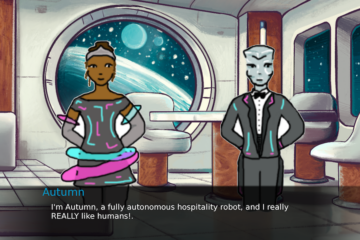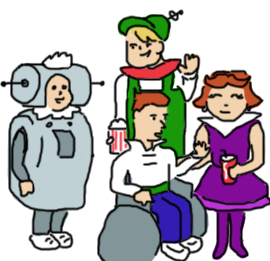A common critique I got on my stories when I was starting out was, “You bring up this issue, but you don’t say anything about it.”
Unlike “too slow” or “too fast” this critique didn’t present an obvious answer. I stared blankly at my manuscript. I wanted an issue, say sexism or homelessness, to be a theme in the story, so I made sure to mention it several times, spaced evenly through the story. Wasn’t that how you did it?
Take a stand
I remember one critique session where an older, more experienced author responded, “Yes, you bring it up, but what’s your stand on the issue? Are you pro- or anti-?”
“I was trying to show all sides,” I said, “I wanted the reader to think about it their own way.”
“You’re not, though,” she shook her head. “Neither side gets validation or condemnation. You have to show why what they say is right and why it is wrong. You’re just throwing the issue in there like… like a series of pebbles on top of the story.”
For a long time, I stuck to my guns. I had to be impartial. I had to appeal to readers of all opinions, right? So I kept not really saying anything about the issues that were important to me, and because they were important to me, I kept wanting to write about them… and so the problem persisted.
It took me years to realize the simple truth: my characters have opinions. Some are pro, some are anti, some wish everyone would stop talking about it. I had to be brave enough to let my characters take a stand and express it in their thoughts or actions, at the risk of disagreeing with them myself – and the fear that people will think I am speaking through the character who hella disagrees with me?
Through the character’s engaging in debate, I could show different sides of the issue, but ultimately, my decisions about the story were going to reflect my view of reality and my view of reality contains my opinion on that issue. I want the person who agrees with me to turn out to be right in the end. And that’s okay. It’s better to be honest and take a stand than write bland stories where nothing is knowable.
How fun is it to read a story that’s not about anything?
Explore it
However, even after I started letting myself take stands, the critique came up. “You bring up labor organizing, but you don’t say anything about it.”
“Yes, I do! See? The conclusion is here, my main character says it in the last line, ‘What we need is a union!'”
“That’s a stance, but… it’s not landing. You’re not exploring the issue.”
I stared blankly at my draft. I showed side a, argument for, side b, argument against, and made a conclusion. Why wasn’t this working?
I was treating Important Social Issues in stories like you do in essays. I forgive my past self, she spent four formative high school years forced to write a lot of essays.
What does it mean to explore an issue? Well, this is one place where “Show don’t tell” comes in.
Try removing the labels. How can you show this issue without naming it?
An example: having a character say, “The company won’t respect our rights if we don’t have the power to do something about it” isn’t the same as having a character do something. Give the evidence, not the argument. Show the repercussions of actions, not the hypotheticals. The company lengthens work hours and freezes pay. The exhausted workers fall ill and the children get in trouble without supervision. The protagonists can’t take it anymore. They meet, and have a vote.
Weirdly, it feels less like “Exploring the issue” to me… I’m not going into the nuances and counter-arguments, I’m just showing a character with problems… but this showing will never get you accused of “not exploring the issue.”
Set off the bombs
I don’t remember who said it, but I once heard short stories described as, “like a surgical strike. You fly in, drop the payload, and leave before the bombs go off.”
That explosion in the reader’s head is the point of the story, the moral, the twist, the emotional payload. What you want to have echo after they put the magazine down or close the web browser on their phone.
You set out to write this story about this important social issue. You have a stand, an emotional connection to this issue. The core image, the thing your mind drifts to inevitably when you think about this… if you can have that be your final image in the story, or have it explode in the reader’s mind AFTER the final image … well, that’s awesome. Most of us aren’t that talented, but I always think of it as a “stretch goal.”
Make your ending matter to the issue. Make the issue matter to your ending.


